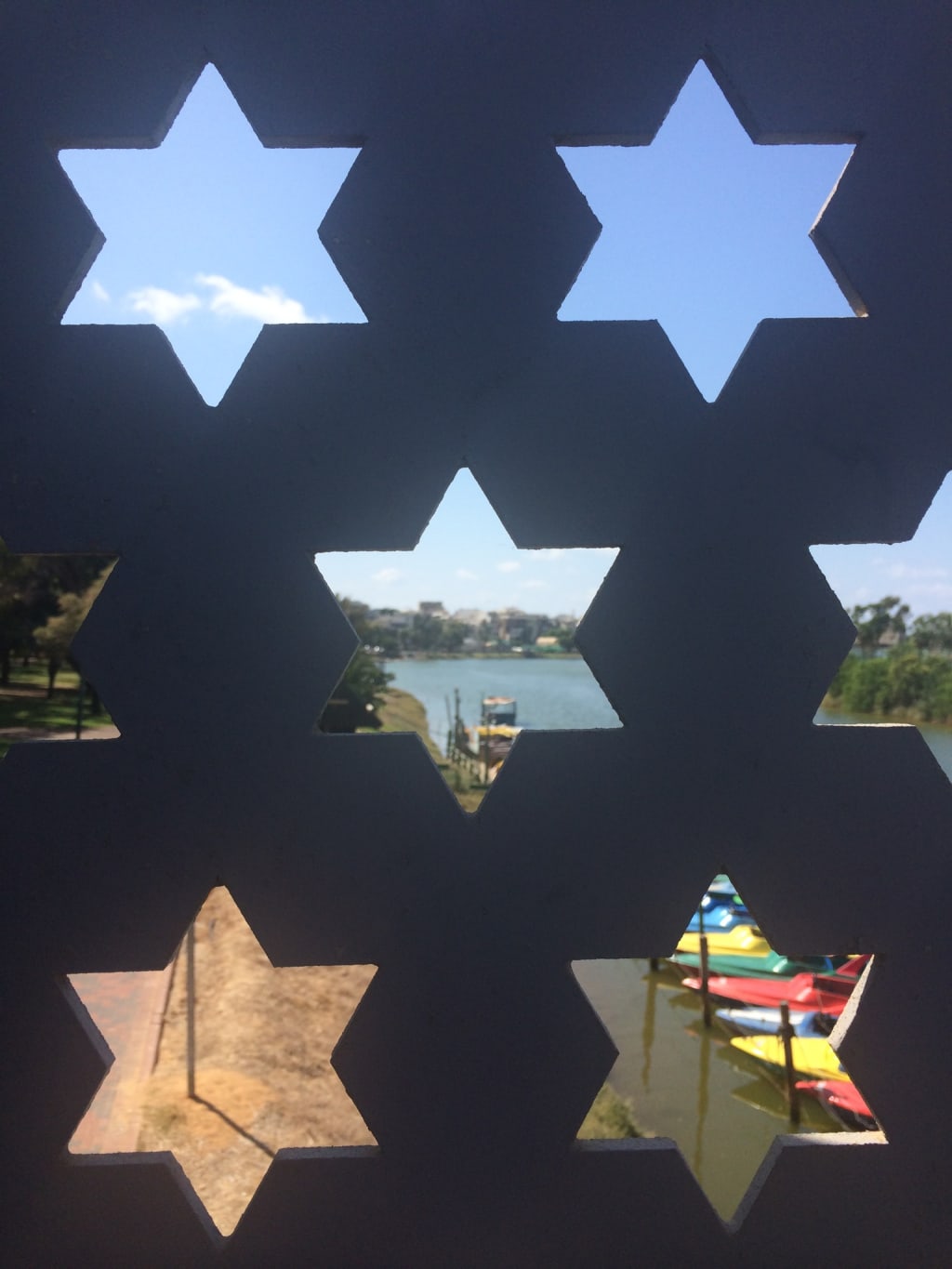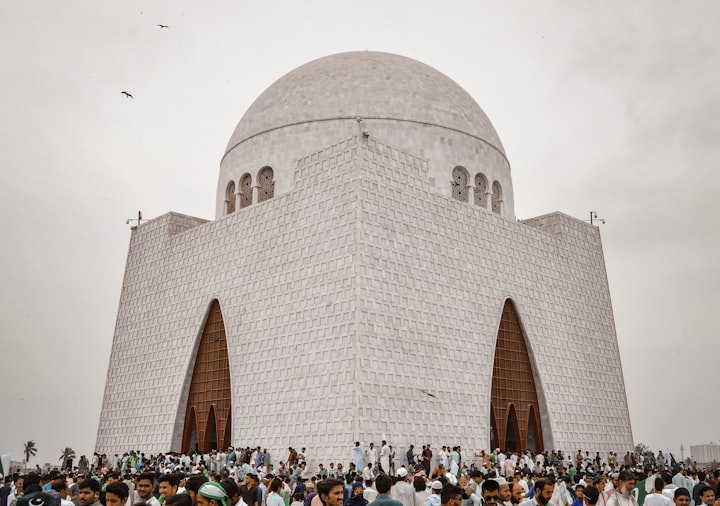Reflections on a Week in Israel
Falafel and Firearms

Almost four years on from my Israel trip and I’m still missing Tel Aviv. Recently, I’ve been replaying parts of the holiday in my mind, and feeling lucky that I got the chance to visit such an interesting and beautiful place.
With hindsight, I can process some of the facts I already knew about Israel and the occupation in the context of actually having been to see the country for myself. Although it’s a thorny issue, it’s one that I feel would be wrong not to address whilst talking about the country, especially when I read articles that are overtly negative and then compare them to my own experiences.
First and foremost, I must stress that at no point during my stay in Tel Aviv did I feel in any way unsafe or under threat. Given the nature of the region, however, there were a number of things that made me hyper-aware; that I was in a country living in constant readiness to defend itself. On the day we arrived, we passed through passport control and were given visas relatively quickly (after a few basic questions were asked – “This is your first visit to Israel?” “Where are you staying?” “What are your plans for your visit?" "Are you visiting Jerusalem?”), then collected our bags and headed for the train station underneath Ben Gurion Airport. My very first observation upon leaving the terminal was that there are soldiers everywhere, and armed ones at that. Coming from the UK, that’s quite a difference – but something I expected having done some reading in the months leading up to the holiday, so as to arrive as informed as I could be. Observing the soldiers wandering outside the terminal wielding machine guns, and sitting near conscripts on the train heading into the city, this is a highly militarised society.
I’d attempted to get my head around the Israeli conscription situation when doing pre-trip research. From what I understand, the majority of citizens, male and female, are obliged to do military service upon reaching the age of 18 (with some notable exceptions – religious reasons for example), and a large number are required to be reservists afterward, meaning they can be called up should events require it. Even taking into account those who are exempt, that’s a huge swathe of the population with experience of military life. In essence, this is a country where almost everyone is (or has been) a soldier. We noticed conscripts all the time, on the trains and buses we used as well as milling about the centre of Tel Aviv, presumably traveling to and from their bases as it was coming up to Rosh Hashanah (Jewish New Year).
Public bomb shelters and baggage scanners were ubiquitous, to be expected in a country where suicide bombings were, sadly, a relatively frequent occurrence until quite recently. Walking from the station to our hotel along Dizengoff Street, the first thing we commented on whilst passing the shops at the front of the Dizengoff Center was the icy breeze of the air conditioning on us; the second was that the main entrance to the shopping centre, as well as a number of the smaller shops, were manned by security guards with hand-held metal detectors. A few days later when we went into the Dizengoff Center in search of McDonalds, I noticed that the guard passed the detector around my waist and nowhere else, presumably because the bombers were known to wear explosive belts around their stomachs.
Another thing that I found particularly striking about Israel is how patriotic and nationalistic everyone appeared to be, if not outwardly vocal, then in appearance. The Israeli flag, blue and white and with the Star of David firmly in the centre, adorned every second shop or bar; it hung over the railings of apartment balconies, it was on flagpoles mounted at regular intervals along the beach and the promenade. I’m not a believer in nationalism by and large, and I considered my feelings on this overt aura of national pride throughout my holiday. I grew up in Northern Ireland, where similar aggressive flag-waving and religious and sectarian division abounded throughout the time I lived there in the early 1990s. I came to the conclusion that in many ways, ostentatious Israeli national pride can be understood in the context of Israel’s birth and continued survival. When the country is only 66 years old, has fought outright for its existence on three occasions since 1948, and has for much of that time been surrounded by countries wanting to utterly destroy it, this flag-waving can rightly or wrongly be seen as an attempt to assert continued Israeli survival against the odds.
Operation Protective Edge (the 2014 Israel-Gaza conflict) finished just shy of four weeks before we arrived in Israel. Very late one night, we were in a particularly dreadful gay bar finishing up the evening’s last pints of Goldstar when a drunk woman came over and started talking to us in order to steal a cigarette. In relatively good (but intoxicated) English, she asked us why we were in Tel Aviv, if we were enjoying Israel, and if we’d been worried about coming to visit given recent events. We explained that whilst of course this had worried us whilst it was on-going, since its resolution we’d been watching the situation closely and checking travel advice on Israel daily, and had (correctly) believed we could come on our trip without worrying that Gazan rockets might mean we’d spend a week running in and out of public bomb shelters. She seemed pleased that we’d come to visit her country, and rambled about local live bands and other music for a minute before stopping abruptly. Looking sad, she said “It’s been only one month since the war, and already everyone forgets. They forget that people died.” Due to her grasp of English as well as all of our inebriated states, I couldn’t discern the meaning of her words; was she referring to the Israelis killed, or the Palestinians? “Next it’ll be Da’esh, you know Da’esh?” (the Arabic term for Islamic State.) “There are Da’esh flags in Jaffa and Gaza, you know? I don’t know…” With that she left us and got into a waiting car with a group of lesbians. We weren’t able to establish the meaning of her words from that brief, drunken exchange. Was she reflecting Israeli fears of invasion or attack when she mentioned Islamic State? Was she lamenting the actions of her countrymen, or the Qassam rocket attacks by Gaza? Either way, that was all we heard anyone mention of the conflict that had happened a month previously during our week in Israel.
The infamously stringent security procedures upon leaving Ben Gurion Airport were something me and my partner had talked about jokingly and slightly nervously before and during the holiday. I had read that queues could be horrendous, that it was recommended to arrive at the airport three hours ahead of departure so as to allow time for intensive security processing. I’d read that in a worst-case scenario, we could be selected for special checking and questioning and even miss our flight. In the event, it turned out that everything went almost perfectly for us. The queue was indeed long – one hour spent waiting to be interviewed by the border guards before I could even check my bag in. Once we reached the front of the queue, and we walked forward to answer the guard’s questions, we were checked in and on our way through to Burger Ranch within five minutes. After the initial questioning, everyone receives a barcoded sticker on the back of their passports and on any baggage they’re checking in. It’s rumoured, though not officially confirmed, that the first number in this sequence reflects the guards’ opinions of you. One – native Israeli, two – friendly foreigner etc, with a sequence beginning with a six meaning you’re a high-risk passenger, most often given to Arab-looking passengers. If this method of assessment is true, then the guards thought very highly of us after asking us a few questions on the nature of our trip and our relationship to each other, and looking intently at our passport photos in comparison to our current appearances – we received stickers with sequences beginning with two. Once we had checked bags in, eaten and gone through security comparable to any other airport, we reached passport control, where a brief scan of our barcodes and a friendly smile was all that occurred before we were given a pink exit visa slip, and headed through the impressive central terminal building to our gate.
It appeared to me that it must be easy for people living in Tel Aviv and cities on the Israeli coast to live in relative peace, far removed, perhaps self-removed, from the Palestinian situation. Although the West Bank wasn’t that far east of us, and Gaza a relatively short distance south, they could have been thousands of miles away for all we knew. The beauty, affluence and calm of Tel Aviv was exactly how I expected it to be – an almost perfect, idyllic place. It was obvious that everyone around us had a good and happy life – the vast majority of people were tanned, athletic, and impossibly healthy-looking. Those few days we spent on the beach, we saw many runners, people cycling, using the outdoor gym equipment. Our evenings were spent in bars filled with young people enjoying life. Everyone we spoke to was welcoming and happy. As soon as people knew we were British, they engaged with us and seemed appreciative that we had come to visit their country. If everyday life in the beautiful coastal cities of Israel is as good as the week I spent in Tel Aviv, then it must be hard for the common Israeli to see things from the Palestinian point of view.
Taking all of that into account, I have to consider how I feel about my trip. Had I taken, in the words of John Lydon, a cheap holiday in other people’s misery? Was I as reprehensible as those people who continued to visit apartheid South Africa despite the sanctions? Did my trip to Israel mean that I was indirectly supporting the morally grey actions of the current Israeli government? As mentioned previously, I’d done a lot of reading about Israel in the years leading up to my holiday, the Middle East being a subject of personal interest. Whilst I felt that I had read a lot about the situation, I couldn't pretend in any way that I knew the full story or understood the arguments. Regrettably, our budget didn't enable a visit to Jerusalem or the West Bank as we would have liked, and thus were not able to see the grubbier side of Israel – the side that isn’t the beautiful beaches, easygoing café culture and amazing street food. A few years down the line, my general feeling is that as much as I’d love to visit Israel again, I'm even more interested in seeing the parts that ordinary tourists normally wouldn't.
About the Creator
James Menzies
Travel, politics, musings, ramblings.





Comments
There are no comments for this story
Be the first to respond and start the conversation.